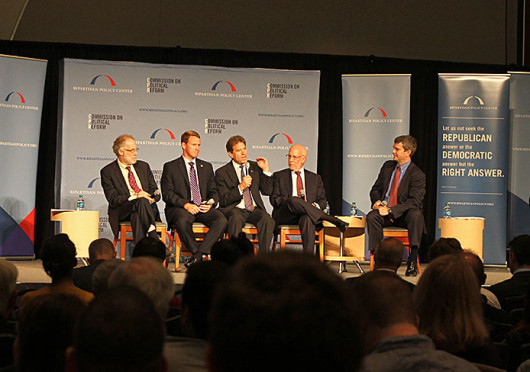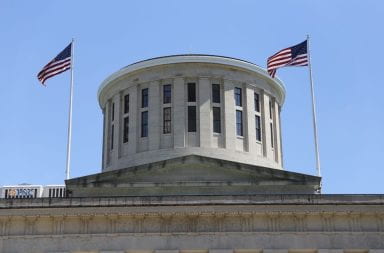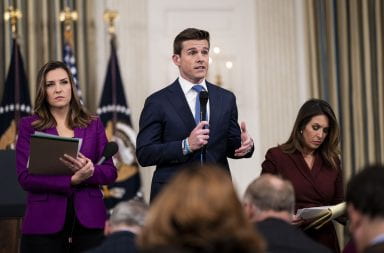
OSU hosted a Bipartisan Policy Center town hall meeting Oct. 15 titled ‘National Conversations on American Unity.’ Political issues such as gerrymandering, voter ID laws and voter turnout were discussed. Credit: Shelby Lum / Photo editor
When examining the divisiveness of politics, John Maynard Keynes once said, “When the final result is expected to be a compromise, it is often prudent to start from an extreme position.”
Although his premise seems plausible, the only problem facing American politics in the 21st century is that members of both the Republican and Democratic parties seem unable, or unwilling, to move away from such positions.
Ohio State hosted the Bipartisan Policy Center’s town hall meeting Tuesday, aptly titled, “National Conversations on American Unity.” A wide range of informative discussion was held on many topics such as gerrymandering, voter ID laws, voter turnout and independents voting during primary season. The BPC Commission on Political Reform was created to understand the causes of America’s partisan political divide and to help America achieve shared national goals.
Good luck with that.
Granted I am a member of Generation Y and do not have as much political experience as most people older than myself. But from what I have witnessed thus far, the government shutdown being the latest example, I am already fed up with the silliness of combative politics from both sides of the aisle.
Our political culture in today’s world has created an environment unsustainable to our future, but is also unable to resolve any real issues that could possibly face our nation’s government. Our lawmakers should be focused on making sure Americans across the country are taken care of as opposed to denying the need of discussion and by guiding our nation’s sustainability toward a cliff we can no longer afford to fall over.
Let us though not confuse being bipartisan with the basic values and ideologies that send people to Congress in the first place. Those who are elected to serve our fellow citizens are not expected to always compromise their beliefs in order to satisfy the rewarding gratification which follows with reaching across the aisle and working with opposing legislatures. We have always been a nation founded upon a differing set of ideas which allow for the building of a foundation of dialogue created to sustain or enhance the beauty of our democracy.
We are at a moment in time where the political discourse across our country has no range, or has been divided amongst specific geographies that add to the gridlock of partisanship within our Congress. Those same people we send to represent our needs or wants for this country are those who have the propensity to act on such irrational notions and to completely ignore the opposite side in order to ensure votes in an upcoming election or to delay amendments from being passed.
The debate isn’t whether there should be a bipartisan dialogue created amongst Republicans and Democrats. It is essential to be able to create and begin constructive conversations that allow both sides to work together to It’s not safe to always be bipartisan, but it’s even more dangerous to be polarized and partisan all the time.


